The tea is free all day here. But you could lose your wages in minutes
To public health experts and recovering addicts, they are the 'misery' machines that are 'deliberately engineered addiction'. To the industry, they provide entertainment in a 'safe, fun, community based setting'. Manchester's slot machines attract hundreds each week to city centre casinos like the Genting, Napoleons and the Admiral, and they come from all walks of life.
Online slot machines are currently facing scrutiny, with the government's 'High Stakes' gambling White Paper exploring tighter regulation.
However, public health experts believe that 'land based' slot machines, and other fixed-odds betting terminals (FOBTs) are just as much of a problem - arguing that other forms of betting - from online bingo, to bets on football - are acting as a gateway to their use.
Despite these concerns, a spokesman for the Department for Culture, Media and Sport told the M.E.N that 'modernisation' of the rules, as explored in the white paper - could mean 'relaxing existing limits on gaming machines in casinos, arcades and bingo halls to help level the playing field with the online sector' - and allowing cashless payments on machines. It's a prospect that alarms campaigners.
While thousands mill past the doors of casinos on busy Manchester streets like Portland Street and Piccadilly, small fortunes are quietly won and lost. Here, the M.E.N's Ethan Davies explores the slot machine palaces that one expert has described as the gambling industry's 'golden goose'.
Try MEN Premium for FREE by clicking here for no ads, fun puzzles and brilliant new features.
The bright sunshine and cacophony of trams, buses, and hawkers on Piccadilly Gardens soon ceases, on stepping inside Admiral Casino, on the corner of Lever Street.
It’s replaced by the artificial light of the fruit machines, and their bells, whistles, and pings. There’s very little chatter, only the odd, under-the-breath murmur of frustration.
Like fellow city centre gambling venues Genting and Napoleon’s, Admiral smells clean. Very clean. All three asked for ID on-entry, and then offered this reporter a free cup of tea or coffee. It seems like a good deal - especially in these times - to have a warm, dry place to get out of the house to -somewhere you can have as many brews as you want.
But, according to experts, this is a means of drawing you in to spend more on machines which are 'mathematically fixed against' you.
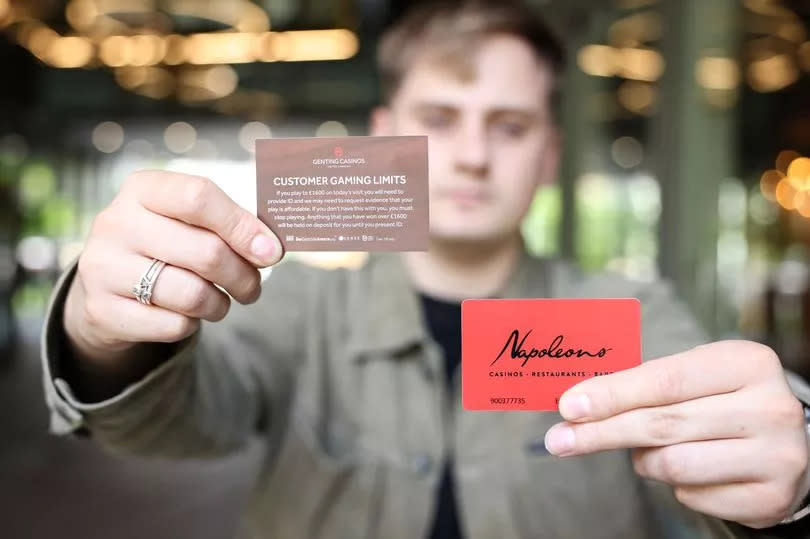
'Mum's coming home soon'
Sitting down in front of one fruit machine, I slide in a new £10 note. To my right are two women, one looks to her in her 30s while another is roughly 60.
“I’m coming home soon,” the older one says on her phone, playing on the slot machine. Her companion just watches.
Ending the call, and flipping the glitter case on her phone back over, something happens on her terminal. “Did you see that?!,” she excitedly asks her partner. For a moment, the pair are quiet, watching the machine whir away.
The younger of the two gets a call now. “Can you get the kids for me because I have overtime at work at half four?,” she asks.
It doesn’t sound like the answer is ‘yes’. She tuts. The other lady presses play again.
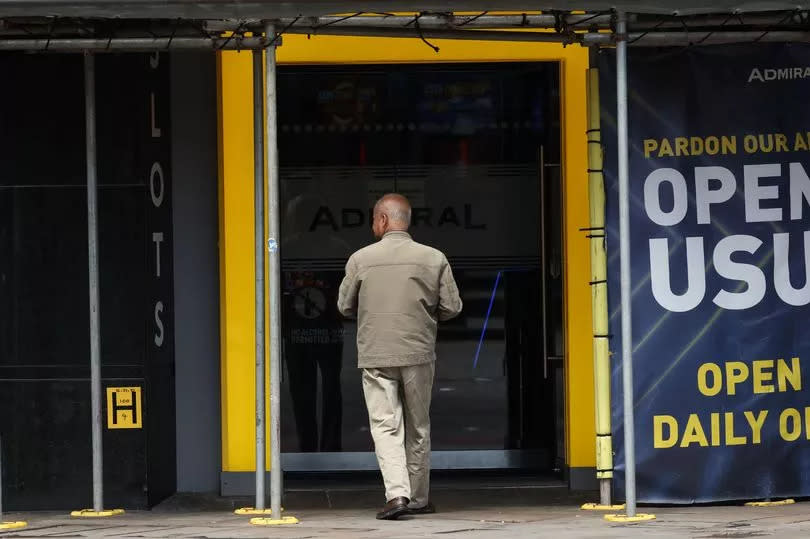
For women, the gateway to these machines is bingo according to experts, whereas men are more likely lured in by football betting. What both sexes have in common is that their chances of winning are slim.
On the other side of the room is an elderly couple, both playing the slots. They look like they’ve been here for a while, and both have a cup of tea placed by their terminal.
“This machine is paying out now,” the lady, sitting next to me, exclaims. Quickly, she draws out a £20 note from her purse, inserting it straight in the machine.
Within two minutes she says she’s ‘had enough’, presses ‘cash out’ and takes her slip. I can’t see if she takes it to the cash desk, or if she puts it straight in another machine.
One of the concerns gambling experts have about these machines centres on 'losses disguised as wins'. The machine pays out, so the punter leaves feeling like they're on top. But that 'win' will be of a size dwarfed by the amount they've pumped into the machine during the session.
'Lonely and miserable'
Earlier in the day, I visited the two casinos that attract slot machine players on Portland Street, Napoleons, and the Genting. Both are larger spaces than Admiral, and both are below street-level, illuminated solely by artificial light.
The machines inside the Portland Street pair were mainly being played by older people, of east Asian heritage, quietly chatting and laughing.
At the Admiral there are lots of retirees too. Upstairs, elderly gentlemen play more old-fashioned slot machines, which don’t have digital screens — just plastic cylinders spinning around.
One NHS expert says places like this target 'people who are lonely and miserable'. A recovering gambling addict who lost £200,000 over 12 years says they caused him 'serious mental health issues' that led to him to think about suicide.
But Admiral describes this as a 'safe, fun, community-based setting', where people play for low stakes.
Roughly half-a-dozen of the older gents sit in the space of a small room upstairs at Admiral, pressing away, but none are talking. The odd grumble interrupts the plastic clicks, until one punter strikes lucky and a flood of silver coins emerges from the machine.
Immediately, he starts putting them back in. Even with his win, no one bats an eyelid. It's the 'rapid, immersive, continuous' nature of these machines that makes them addictive, according to experts. But unlike other vices that you might see out on the streets of Piccadilly Gardens, there's little sign of desperation or disintegration among the punters. The atmosphere is quiet, calm, and respectable - deceptively so, to those who work with slot machine addicts in the region.
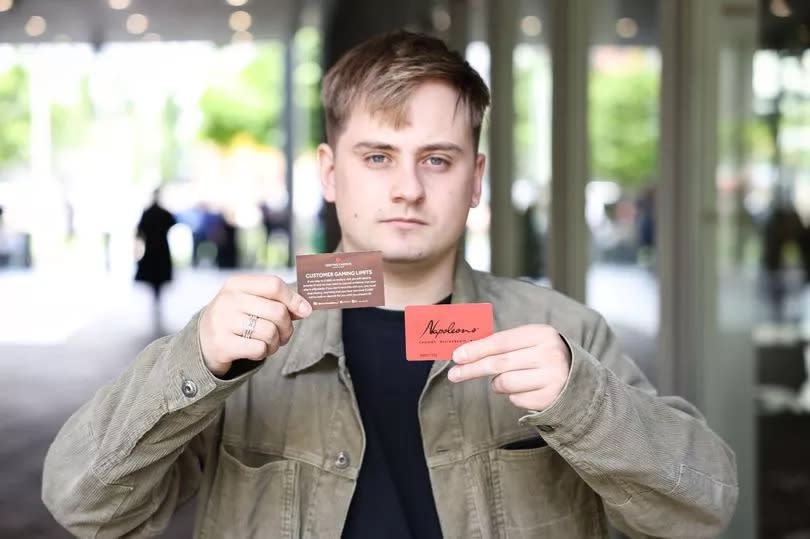
The behaviour I saw inside Manchester's city centre casinos, on two trips to the Admiral, and on visits to the Genting and Napoleons, was entirely civilised. The clientele tended to be older people, or working people minding their own business - a landyard-clad office worker eating her lunch, a tradesman in high-viz gear, and a Royal Mail worker switching his attention between his machine and the ITV Lunchtime news.
No-one was drunk, some people were social with one another, and IDs were checked stringently. It's easy to see why, to some, it might seem a refuge from the pressures of the world outside.
But Greater Manchester Combined Authority considers these machines amongst the most harmful because of 'a high rate of play' and the 'short time between wagering and the outcome with very limited social interaction', according to the organisation's 'Gambling Harms in Greater Manchester' strategic needs assessment report, from May 2022.
To critics, the fact this all occurs in a comfortable, sedate atmosphere, adds to the seduction. As a senior figure in the region's fight against problem gambling told us, 'it's all to keep you playing'.
"The game is over in 2-3 seconds. So you press it again. And again. And again"
Matt Gaskell, the Clinical Lead for the NHS Northern Gambling Clinic, faces up to slot machine addiction every day.
"Slot machines are the most common product that our service users have problems with," he tells the Evening News. "This is no surprise given how common they are... and how much the industry markets them to customers. 45 percent of slot machine players are either addicted or at risk of addiction."
Matt's experiences in the clinic means he believes 'gambling machines, without question, are a clear and present danger to public health' and that the slots are 'deliberately engineered addiction and misery causing machines'.
The reason they're so dangerous, he says, is because they're 'rapid and continuous'. He went on: "There are elements of gambling which are social, like bingo, but there’s a real move to rapid, continuous forms of gambling like slot machines — they are the best revenue generators.
“The slot machine is the golden goose of the industry. Marketing is designed to get people across to them. Bingo halls now have slot machines. [Bingo] has become a gateway to slot machines. Young men in football betting will be given offers that are difficult to turn down for slot machines.”
It's this process of getting gamblers to use FOBTs that really concerns Matt. He continues: "We need to restrict access to these machines, for example by banning targeted marketing of them, moving them out of sight in bingo halls, taking them out of bookmakers. Until they are rendered as safe as possible we have to take significant action."
When an individual does go from another form of gambling to the slots, they’re confronted by ‘design characteristics’ aimed at ‘keeping your attention on them for a long period of time’, he claims.
“They are so addictive because they are rapid, and they are immersive, and they are continuous. You press the button and the game is over in 2-3 seconds. So you press it again. And again. And again.
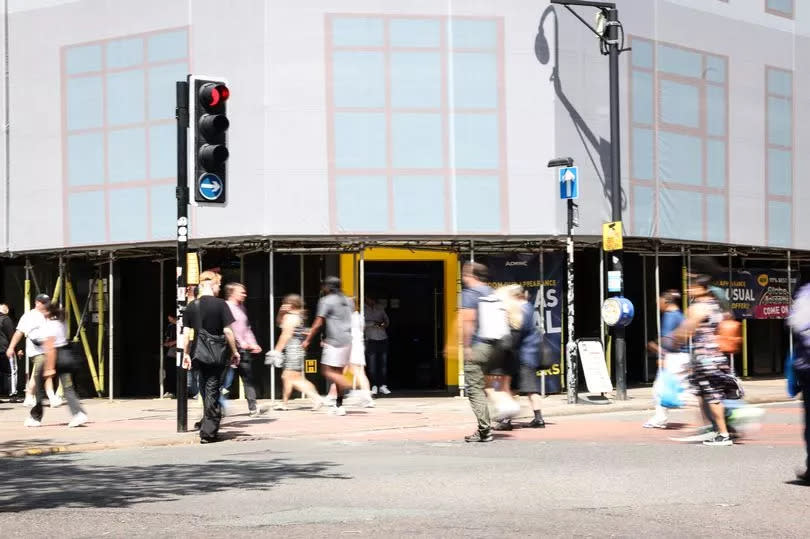
“There’s a near miss factor and losses disguised as a win. It’s a really addictive product. People just do not want to walk away after losing a few quid. They want to get the loss back."
Losses disguised as wins are the events when a punter wins a certain amount of money from the slot machine, which is less than the stake amount - so amounts to a net loss. However, the news of the smaller win will be 'accompanied by the sounds and animations that accompany genuine wins', according to researchers looking at addiction.
That's not the only way gambling firms entice you inside the slot machine halls. Matt went on: “They will offer you tea, because they want you to get comfortable, to give you personal attention — it’s all to keep you playing.”
These characteristics appeal to ‘people who are lonely’, Matt continues. “They do seem to be a substitute for what one might get from a relationship,” he says.
“Some of our service users say the machines are like a surrogate relationship — it’s reliable, they can spend time with it for a long period of time, and they can get a reward from it.
“If you peer behind the curtain you quite often see people who are lonely and miserable. The machines are fixed against them. It’s mathematically fixed against you.”
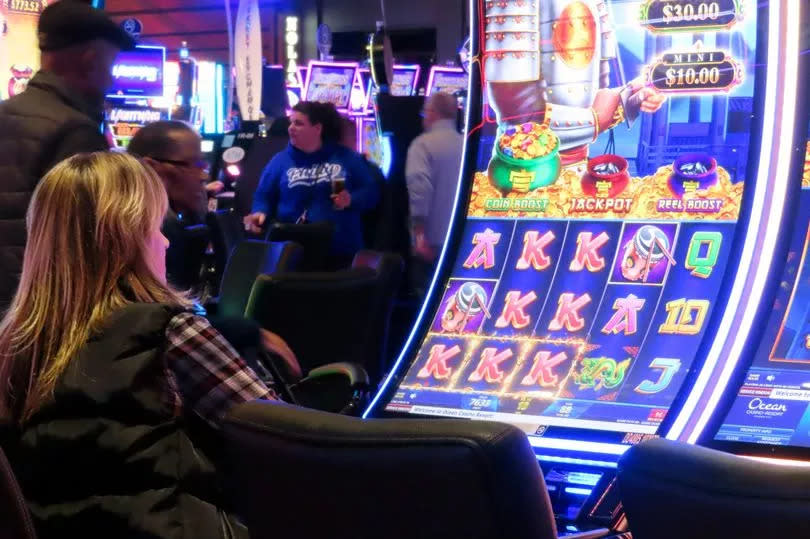
'It was scary how quickly I got addicted'
This combination of loneliness and addictiveness meant slot machines were listed among the ‘most harmful’ forms of gambling by the GMCA report into harms released in May 2022. Its headline finding is that one in fifteen residents in the city-region 'are experiencing the harmful impacts of gambling', and more than half of Greater Manchester's 2.8 million residents have gambled in some way in the last year.
One man who knows how addiction can take hold is Will Halstead. The 34-year-old had his life taken over by addiction between ages 18 and 30. It all started when he tried to fit in.
"I got a job and everyone in my office did accumulators every weekend and I got into that," he said. But his desire to be one of the gang was soon transformed into a full-blown addiction to both online and land-based slots, and he would visit casinos on his lunch break.

He continued: "I was bombarded with adverts for casino products. It was pretty scary how quickly I got addicted. It was a double-click — you didn’t have to wait for the rollers to go round — and it was instant.
"I was completely engrossed in where my next bet was coming from. It played with me so much that £1 or £2 was not enough so I increased the stakes — soon it was my whole wage and then it was credit cards. Then I was borrowing money from banks. It was all going on gambling."
Eventually, Will got 'exhausted' and quit gambling. He's now three years and seven months into recovery - but as well as seeing £200,000 squandered over the 12 years - there's another loss he can't get back: Time.
"It consumed my time — that was the shocking thing, the time," he went on. "They are not particularly exciting games, it’s just clicking, and seeing the result."
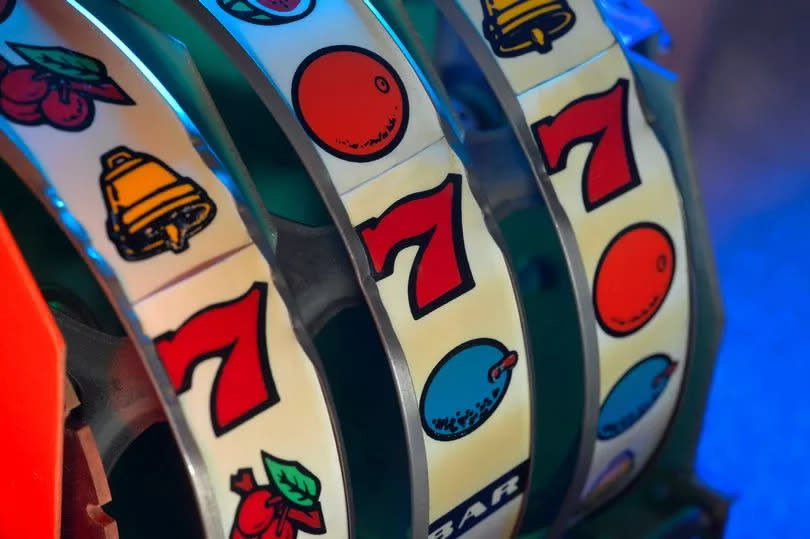
'Zoned out to the rhythm of the reels'
Currently, the Department for Culture, Media, and Sport (DCMS) — the government division which oversees gambling legislation — is consulting on how new laws can ‘look at how to conduct financial risk checks for problem gambling’ and ‘what level stake limits should be set for people playing online slot games’.
Already, the stake limit for ‘land-based FOBTs’, as I played, is set at £2 per spin. The consultation out now is examining if a similar cap should be put in place for online FOBTs.
But Matt thinks the issue is not just the stake limit - it's the play speed and duration people play that's the real problem.
“I was playing online slots the other day at £1 per spin. I lost £20 in five minutes,” Matt says. "Lowering the stake to a £2 spin limit will have a positive effect, but you can still play continuously and lose more than you can afford in a short space of time at that limit.
"Slowing the process from pressing the button, to getting the result, to being able to spin again will help. Significantly slowing the spin speed will help. We don’t know what a safe speed is, but something closer to 10 seconds rather than 2.5 seconds will make a difference. But we also need to break up the continuity with mandatory breaks.
"Many people who are addicted are playing for time, zoned out for prolonged periods to the rhythm of the reels, rather than gambling for big money. To date this hasn’t been tackled."
In my own experience, playing the minimum stake of either 20p, 30p, or 50p, my £10 note was gone in 15 minutes as a novice player.
But as far as the government is concerned, slot machines have been sufficiently reformed - and the task is to bring online gaming - which ministers believe has been able to thrive as the last gambling reform came in 2005, so technology has overtaken legislation - into line with them.
The proposed new laws, a DCMS spokesperson says, aim to ‘strike the right balance’ between modernisation of legislation and protecting online players.
“We want to protect those most at risk of gambling-related harm while allowing those who want to gamble to do so safely,” a statement said.
"In 2019, we introduced a stake limit of £2 for Fixed Odds Betting Terminals, and we have now published our consultation on proposals to introduce a stake limit for online slot games, which have a problem gambling rate nearly 20 times higher than the average rate for all types of gambling.
"Our white paper proposals strike the right balance between modernising out of date regulations for casinos, arcades and bingo halls, while better protecting consumers who are increasingly choosing to gamble online."
One example of 'modernising' rules includes 'relaxing existing limits on gaming machines in casinos, arcades and bingo halls to help level the playing field with the online sector, and allowing cashless payments on machines subject to appropriate safeguards casinos', a DCMS spokesperson added. The White Paper says one primary aim is to liberalise the ratio of high value and low value machines.
Currently, venues can have four low-value machines - called category C or D - for every higher-value machine, category B. Lower value machines have a £2 stake limit, but category B terminals have a £5 limit, and new proposals want to allow one high value machine for every low value.
That's alongside examining if cashless payments should be taken. "We will work with the Gambling Commission to develop specific consultation options for cashless payments, including the player protections that would be required before we remove the prohibition [on cashless transactions]," the White Paper said.
At the same time, the White Paper does address the issue of tightening curbs to prevent underage players on land-based machines -although there was no evidence of that at the venues the M.E.N. visited.
"There are strict and well-observed rules for age verification online and in many land-based venues," the White Paper says. "However, there are still too many instances of insufficient age verification in some venues, particularly those such as pubs, which can offer adult-only gaming machines but are not adult-only venues like many gambling premises.
"We challenge industry to improve age verification and will legislate when Parliamentary time allows to strengthen licensing authority powers in respect of alcohol-licensed premises by making provisions in the Gambling Commission’s code of practice binding."

'22.5m UK adults enjoy a bet each month'
A spokesperson for the Betting and Gaming Council (BGC), of which Napoleon’s and Genting are members, said that its firms contribute millions to curb problem gambling, which they say only affects 0.3 percent of the UK's population.
A statement said: “Casinos are a vital pillar of the hospitality and tourism sector in cities and towns across the UK, welcoming 10m customers a year, supporting 13,500 jobs and contributing £800m to the economy.
“Casino customers can access a range of safer gambling tools including spend limits and time limits on play, while highly trained staff are on hand to provide expert advice. Safer gambling information is also prominently displayed throughout venues. Around 22.5m UK adults enjoy a bet each month, and according to the independent regulator, problem gambling rates remain low at 0.3 per cent.
“The BGC’s largest members pledged an additional £100m of funding over four years for Research, Education and Treatment services to tackle gambling related harm to be administered by the independent charity GambleAware. BGC members have gone further and will have provided £110 million to GambleAware by the end of March 2024.”
The BGC does not represent Admiral, as that is classed as an 'adult gaming centre'. A spokesperson for Admiral said: “Admiral offer low prize, low stake slot machines in a safe, fun, community based setting and welcome hundreds of people through our doors weekly, from all walks of life, who enjoy this type of entertainment and social engagement. Games are subject to stringent requirements and standards set by the Gambling Commission and are certainly not fixed which is why customers enjoy playing them.
"We do however recognise that for a small minority of people, gambling can become a problem and as you’ve identified, we make several tools available to help our players control what they spend. These steps have been certified by, among others, the Global Gambling Guidance Group (G4) in recognition for our excellence in responsible gambling. These are supported by our highly trained staff who supervise our customers’ time with us.
"We are encouraged by the low rates of problem gambling being reported by the Gambling Commission and we’re committed to work with all stakeholders to reduce this further.”

 Yahoo News
Yahoo News 
